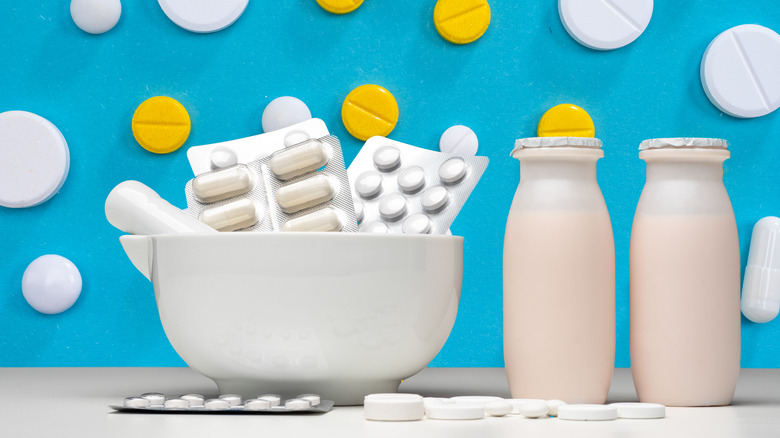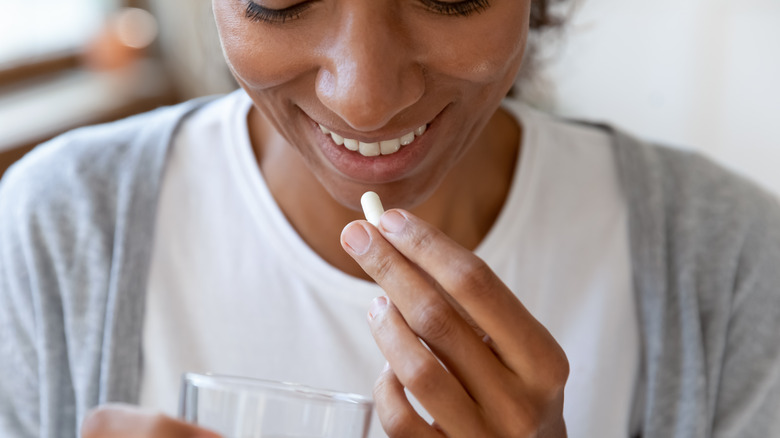If You Already Eat Probiotic Foods, Do You Really Need A Supplement?
Do you eat yogurt, sauerkraut, pickles, natto, or buttermilk on most days? As you probably know, these foods are not just delicious but healthy, too. What makes them stand out is their high content of probiotics, or live bacteria, that promote gut health. Lactobacillus acidophilus, Bifidobacterium lactis, and other probiotic bacteria can boost digestion, improve blood lipids, and keep your immune system strong, notes a 2016 review featured in Tropical Life Sciences Research. Some studies suggest that probiotic foods may also protect against cavities, reduce inflammation, and lower blood pressure.
Probiotics are also available in supplement form. These products can balance your gut flora and prevent antibiotic-associated diarrhea, according to the National Center for Complementary and Integrative Health (NCCIH). What's more, they may help prevent or relieve constipation and benefit people with gum disease, digestive disorders, and allergies. However, there are cases where probiotic supplements can make things worse. NCCIH says that certain individuals, especially those with weakened immune systems, may develop antibiotic resistance, infections, and other issues after taking probiotics.
These dietary supplements are likely safe for healthy people. The question is, do you really need them if you already eat probiotic foods? Let's see what the research says about it.
Are probiotic supplements really necessary?
Kefir, yogurt, kimchi, mozzarella, and other fermented foods are chock-full of probiotics. The same goes for sourdough bread, tempeh, and pickled vegetables, according to the Gastrointestinal Associates. However, their probiotic content may vary based on several factors, such as food processing and storage conditions, explains a 2019 review published in the journal Nutrients. Your enzyme levels, gastric acid secretion, and gut microbiota can further influence the viability of probiotics.
Considering these aspects, you might want to take a daily probiotic supplement for optimal gut health. That may not be necessary, though. A 2016 review featured in Genome Medicine suggests that probiotics have no significant benefits for healthy people. Plus, these products don't require FDA approval before hitting the store shelves — and, therefore, it's difficult to assess their safety and efficacy.
The experts at MD Anderson Cancer Center recommend eating probiotic foods rather than popping pills. "Maybe a probiotic supplement will have a positive effect on your digestive system if you're lucky, but it will likely have no effect," said nutritional epidemiologist Carrie Daniel-MacDougall. "And it could even disrupt or displace some of the good bacteria you already have," she added.
All in all, your best bet is to fill up on probiotic-rich foods. For example, you could start your day with Greek yogurt, snack on pickles between meals, or add kefir to salad dressings. Go one step further and replace meat with tempeh every now and then or swap your afternoon coffee for homemade kombucha.


